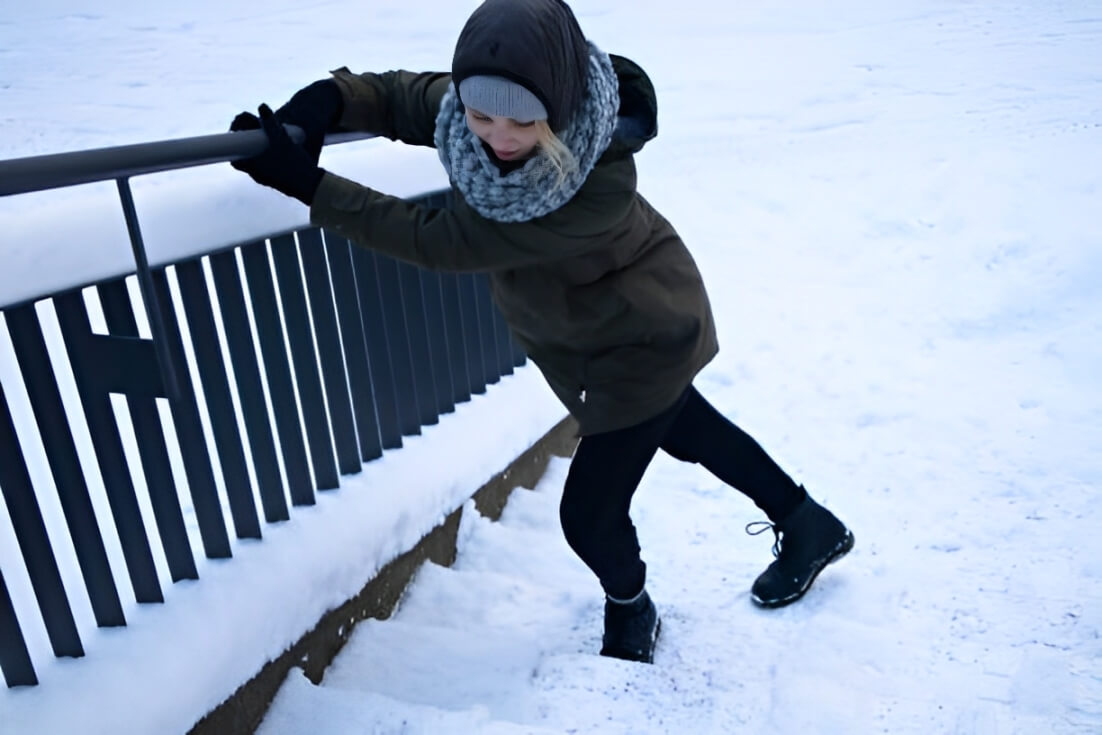Slip and fall accidents happen all the time, but when they occur on commercial property in Texas, figuring out who’s responsible isn’t always simple. If you’ve been injured on business property in Texas, it’s important to understand your rights and how slip and fall liability in Texas works.
Texas law doesn’t automatically hold property owners accountable for every fall. Liability depends on what caused the accident, who owns or controls the property, and whether they knew (or should’ve known) about the danger. This area of law is known as Texas premises liability law, and it lays out what businesses are expected to do to keep people safe.
Here’s how it works.
When someone slips and falls on commercial property, the legal concept that often comes into play is called premises liability. Understanding what that means—and how it applies in Texas—is the first step.
What Is Premises Liability?
Premises liability is the legal idea that property owners are responsible for keeping their property reasonably safe. In Texas, this includes fixing or warning people about hazards that could cause injury—especially on commercial properties open to the public.
Under Texas premises liability law, businesses owe a duty of care to customers, clients, and others who are legally on their property. That duty includes regularly inspecting the property and dealing with unsafe conditions in a timely way.
This legal responsibility is a big part of what determines who is responsible for a fall in a Texas business.
When Is a Business Liable?
Just because someone falls doesn’t mean the business is automatically at fault. To hold a commercial property owner or operator liable, an injured person generally needs to prove the following:
- A dangerous condition existed on the property.
- The business owner or employee knew or should have known about the condition.
- They failed to fix it or warn about it.
- That failure caused the injury.
These cases often hinge on whether the owner had “actual” or “constructive” knowledge of the hazard. For example, if a spill sat on the floor for hours and nobody cleaned it up, that might qualify as constructive knowledge. But if someone slipped right after a drink was dropped, liability is less clear.
Texas courts also consider whether the danger was something the injured person should’ve seen and avoided. This is part of the Texas property owner duty of care, but it’s also tied to shared responsibility. If someone was texting while walking and didn’t notice a wet floor sign, for instance, the court might reduce their compensation under Texas’s “proportionate responsibility” rules.
Common Causes of Commercial Property Falls
Some of the most common reasons for a commercial property slip and fall in Texas include:
- Wet or slippery floors with no warning signs
- Uneven pavement or sidewalks
- Poor lighting in stairwells or parking lots
- Loose mats, rugs, or floor tiles
- Leaks from refrigeration units or HVAC systems
- Obstacles left in walkways
These are considered “dangerous conditions” under premises liability. If they aren’t handled quickly, they can open the door to a slip and fall lawsuit in Texas.
What to Do After a Slip and Fall
If you fall at a business, there are steps you should take right away to protect your health and your legal rights:
- Report the accident to a manager or employee.
- Document everything: take photos of the scene, your injuries, and what caused the fall.
- Get witness information if anyone saw what happened.
- Seek medical care as soon as possible.
- Keep records of your treatment, symptoms, and expenses.
These actions can make a big difference in any potential Texas slip and fall legal process down the line.
The Legal Process: What to Expect
A slip and fall claim usually starts with filing a personal injury claim against the property owner or their insurance company. Your lawyer will gather evidence like surveillance footage, maintenance records, and witness statements to build your case.
Keep in mind that Texas has a two-year statute of limitations for personal injury claims. Waiting too long could mean losing your right to sue altogether.
Also, many businesses carry liability insurance that will cover injuries on their property. But insurance companies don’t always pay out fairly. That’s why many people seek legal help to ensure they aren’t pressured into accepting low settlements.
Understanding business owner responsibility for fall in Texas can help you figure out what a fair outcome should look like.
Get Legal Help You Can Count On
Slip and fall cases aren’t always straightforward. Proving slip and fall liability in Texas often depends on details that can be missed if you’re not looking closely. If you’ve been hurt on commercial property, The Law Office of Kyle J. Moore, PLLC is here to help.
We don’t just handle personal injury cases. Our practice also covers consumer law, insurance law, general civil litigation, appellate law, and more. Whether you’re dealing with a fall in a business or facing a different kind of legal issue, we’re ready to stand with you.
Get in touch with The Law Office of Kyle J. Moore, PLLC today to talk about your case and your options.
